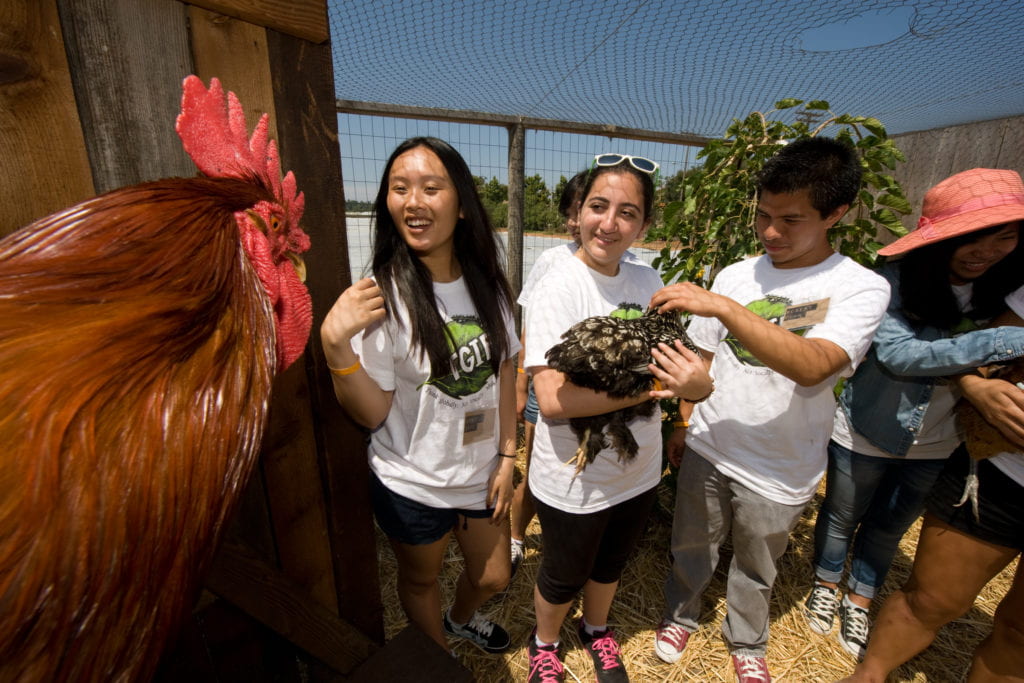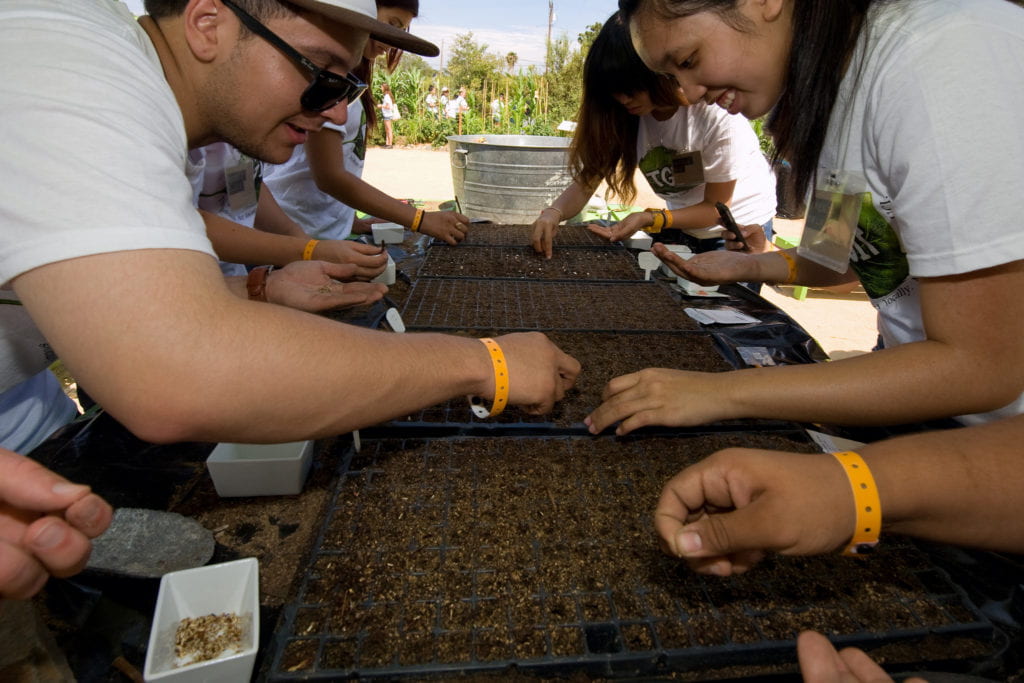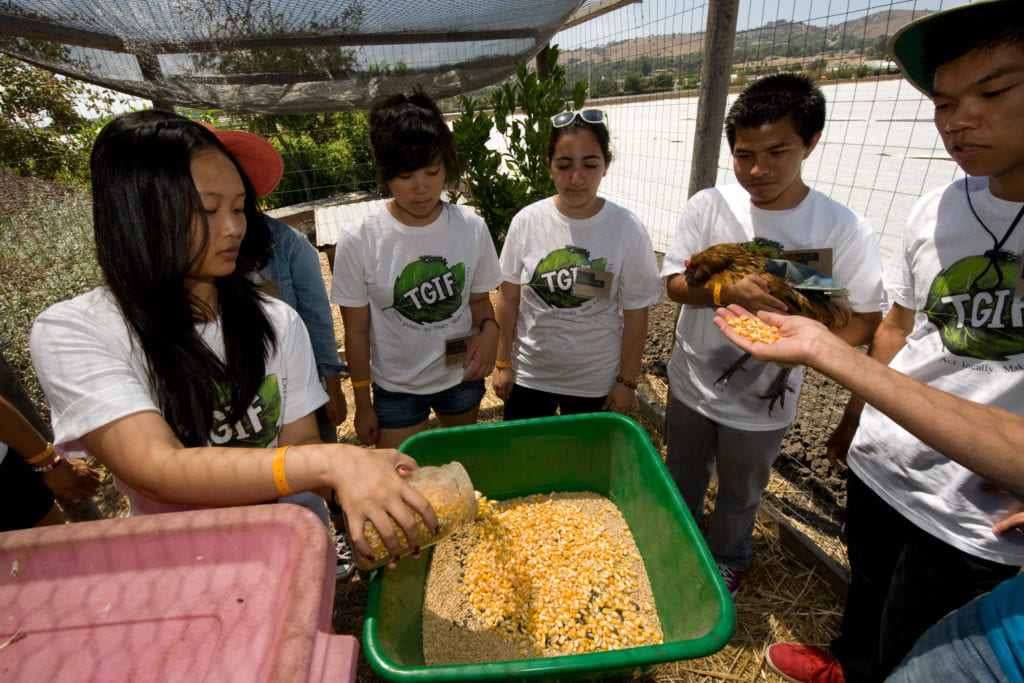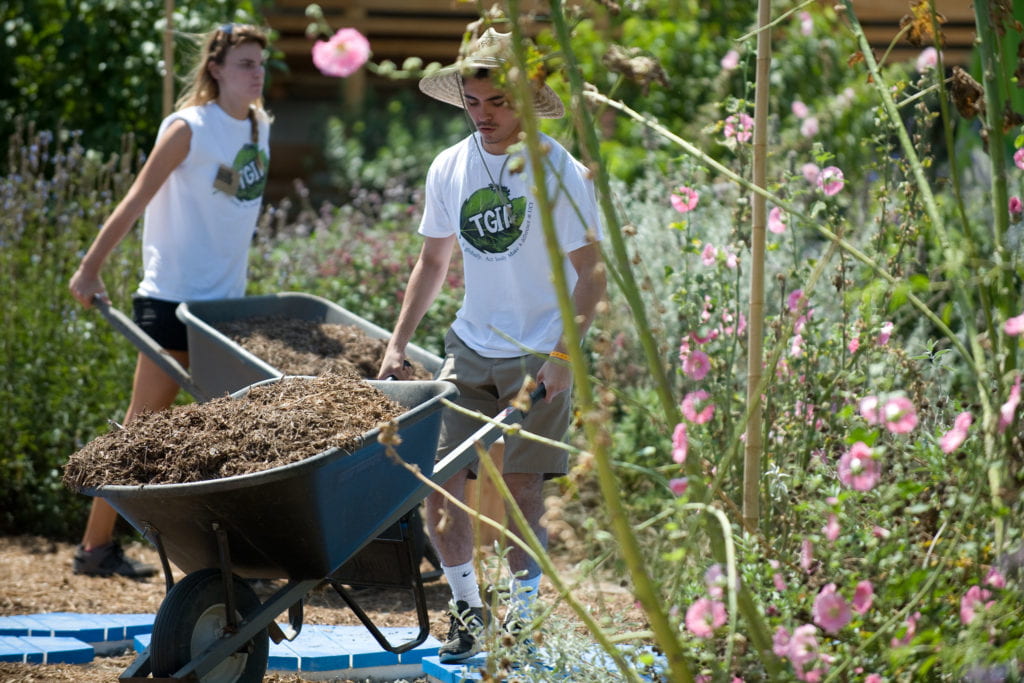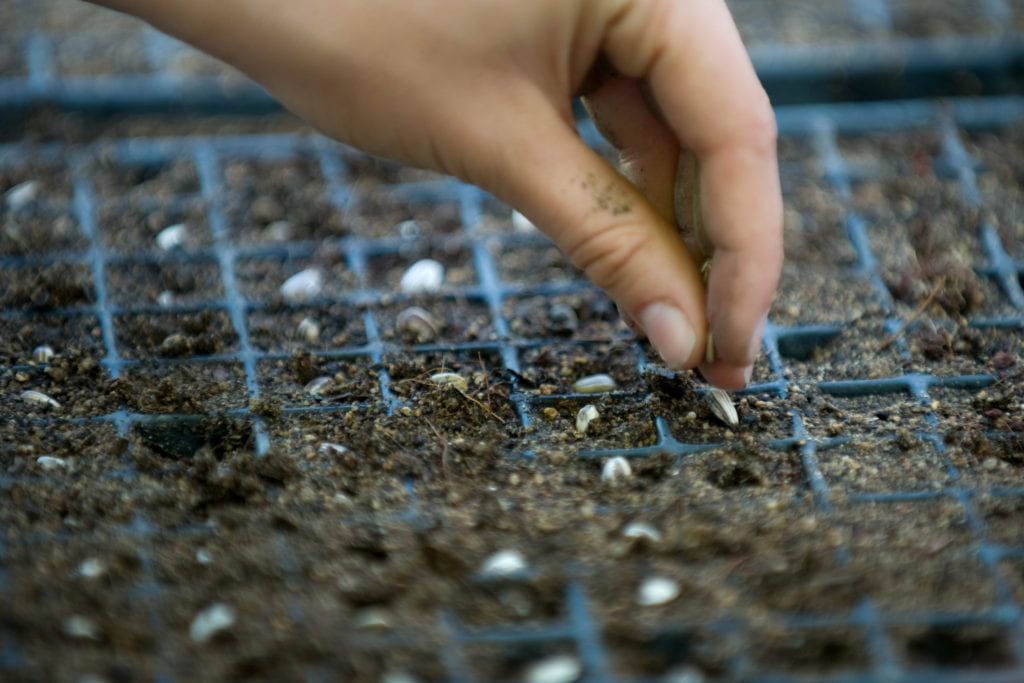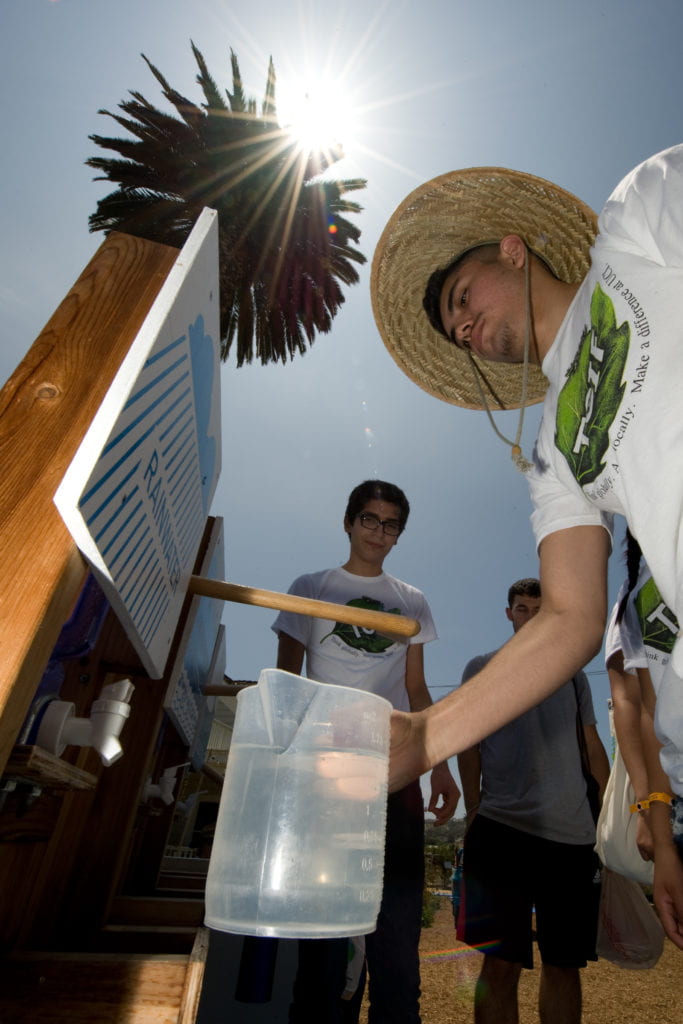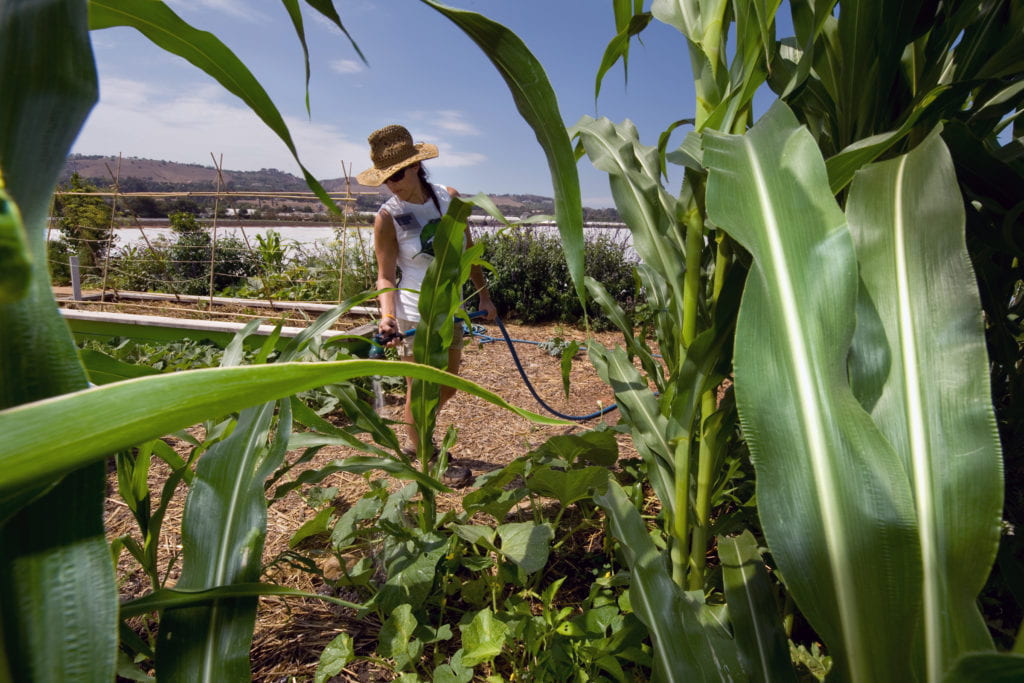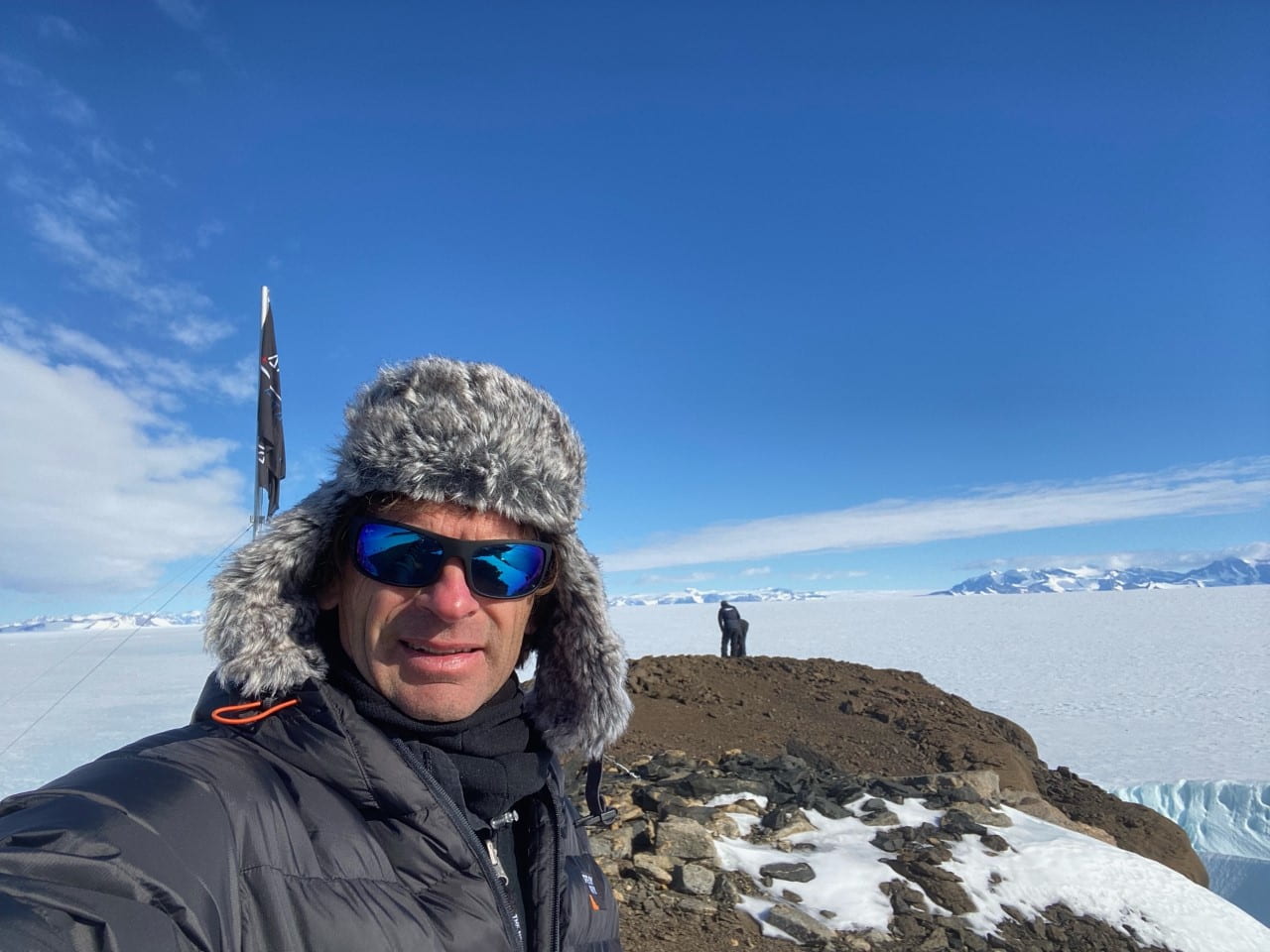Sowing the seeds of sustainability
First-of-its-kind summer institute cultivates environmental activism – and leadership skills – among incoming students
The sun will rise in the east and set in the west today, just as it always does. But 20 incoming freshmen and transfer students who participated this year in the inaugural Summer Institute for Sustainability Leadership are seeing that process – indeed the entire pulse of the planet – in a whole new light.
“It may have been a little bleak for the students,” says Melissa Lewis, a senior in social ecology and a mentor during the three-day immersion into Earth’s shaky health, “but it’s necessary, because out of tragedy comes conviction, commitment and action.”
SISL (pronounced “sizzle”) is a first-of-its-type program in the University of California system, a joint endeavor of UC Irvine’s Global Sustainability Resource Center, Student Affairs office and The Green Initiative Fund. It offers select students a chance to build leadership skills while learning about Earth-friendly practices on campus and around the world, according to Abby Reyes, staff director of UC Irvine’s Academic Sustainability Initiative.
The institute provides workshops on sustainability as well as leadership and action-oriented projects that engage students in fun team-building activities and community service. It culminates in a group project presentation and networking brunch with faculty, administrators and leaders in global sustainability.
The curriculum highlights the role of the students’ generation in creating a life-sustaining society. The hope is that participants will tackle projects aimed at slowing the Earth’s decline during their time on campus. Aspirations this summer ranged from enlisting big business and politicians in sustainability efforts to convincing individuals to consume less stuff.
“This program is the kind we love originating at UC Irvine,” says Thomas Parham, vice chancellor of student affairs, “because it goes beyond the classroom to help students from varied backgrounds develop their full potential and learn to work together for the common good.”
The 2013 leadership training began with a test that gauged the emerging activists’ project execution, influencing, relationship building and strategic thinking skills.
“I didn’t think I was much of a leader when I started out,” says Andrew Salazar, an incoming undeclared freshman from Huntington Park. “I’m quite shy. But I decided that since I’m coming to college, I should push out of my comfort zone. And I found out I do have strengths as a strategic thinker. I like leading. And I want to work on waste disposal issues.”
The students’ schedule included a visit to San Juan Capistrano’s Ecology Center, where they learned about sustainable farming techniques such as mulching, composting, and harvesting and grinding homemade chicken feed. They also pumped their own water, a lesson that brought home the difficulty of supplying water for drinking and irrigation.
“Only 1 percent of the water on the planet is usable, because 97 percent is saltwater and 2 percent is frozen glacier ice,” noted Brenda Tran, a freshman in pharmaceutical sciences.
During a panel discussion on global leadership, the students shared their thoughts on the book The Story of Stuff: The Impact of Overconsumption on the Planet, Our Communities and Our Health – and How We Can Make It Better.
“I come from a family where we were always buying the latest technological gadgets and hip clothes and things we don’t need,” confessed Kacey Caunan, a freshman in global cultures. “We need to rethink what we buy and where it goes, because there are negative impacts on the Earth.”
At the concluding lunch, Wendell Brase, vice chancellor of administrative & business services, told the students that they’re on the right track.
“You will fit right in here at UC Irvine,” said Brase, an internationally acknowledged leader in campus sustainability programs. “I’ve heard you all talk about these issues from the political, economic, social justice and technical aspects. This is the kind of conversation we need to keep having.”
Besides Lewis, the SISL mentors this summer were Al Anoud Baddour, a sophomore in biological sciences; Audra Bylund, a senior in social ecology; Katherine Chin, a senior in Earth system science; Vivi Sanchez, a junior in civil engineering; and Kenny Teeter, a senior in civil engineering. Jaimie Wan, a senior in urban studies, served as project assistant. Marisa Arpels coordinated the institute on behalf of the Global Sustainability Resource Center.
